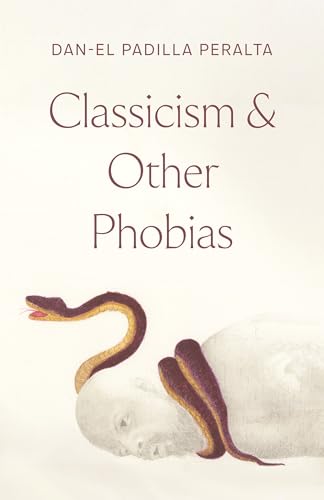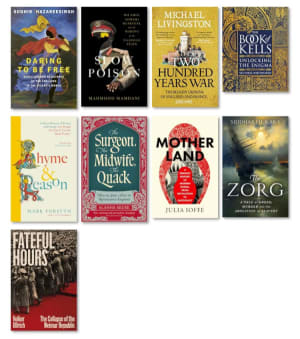Classics is an odd subject with a long history.
(I will define Classics as the study of the Roman and Ancient Greek world, with an emphasis on the written-down remains)
To give you an idea of how long this subject has been taught: if you attended Oxford University in the UK in the late 13th century you would have studied Latin grammar, logic and rhetoric, which was called the trivium1 and was kind of an early classics degree. If you attend Oxford University today you can choose between computer science, economics and management, modern history2, a bunch of other stuff and... Classics.
What accounts for its staying power?
One answer is that a degree in Classics leaves you with a mastery of obscure languages, training on how to win an argument, and (often) an unhealthy enthusiasm for the masochistic toughness of the Spartans. In short it is ideal training to be a corporate lawyer, which has been the fate of a clear majority of the classicists I know from my time at university.
But clearly you don’t have to study Classics to become a corporate lawyer so there must be more to it.3
What makes a classic?
This is where Dan-El Padilla Peralta, classicist and author of the recently released Classicism and Other Phobias has some interesting perspectives. In his own words, he is interested in Classicism as:
the historical-material processes whereby some domains of human experience come to be identified and valued as classical.
Dan-El Padilla Peralta, Classicism and Other Phobias
He is intensely suspicious of the origins of Classics - ie the “historical-material processes” of Classicism - while hopeful that the subject of Classics in the future will confront those origins and then go on to constitute a much broader field of study than just the Greek and Roman stuff.4
What’s wrong with Classics?
Padilla Peralta holds that the problem with Greek and Roman stuff is that it has been tainted by centuries of European and North American racism. Why? Classics as a modern discipline was being formed alongside and at the same time as the Americas were taken over by Europeans, with the exploitation and exclusion of indigenous people and black Africans that this entailed. Classics was assembled by racists.
This is summed up in his introduction:
I will work from the proposition that the field of classics as a structure of institutionalised study originated within and has historically derived profit from racial capitalism.... I hold that there can be no effective and ethical method for recovering and studying the pluralisms of the past... without a corresponding political struggle to redistribute the material and psychic resources that have been piled up in the course of racial capitalism’s tentacular extension across the globe.
Dan-El Padilla Peralta, Classicism and Other Phobias
So the work of confronting racial injustice in the past is intimately connected with combating racial and social injustice in the present - Classics matters! Either as a perpetuator of a white normalising dominance, as the author may assert it currently is, or - if reformed - an important part of breaking down this hegemony.
Rearranging the bookshelf
Padilla Peralta hints at what a new classics might include, suggesting that “this classicism would claim Bwa Kayiman and the Haitian Revolution as its origin-story”
But don’t be fooled that you can just add a few extra books to your library and bin a couple of the old ones - the act of choosing the Classics library is itself a form of appropriation.
the problem is not resolvable simply through expansion of the overrepresented paradigm of classics “to include other classical traditions”: such moves simply reaffirm, if they do not actively incentivise, the discipline’s coloniser tendencies.
Dan-El Padilla Peralta, Classicism and Other Phobias
Next steps?
So where does this leave us? To be honest I’m not sure, and this is one of the things that made me struggle with the book. I have a reasonable idea of what Peralta Padilla finds objectionable in how classicism has worked to date, but a very unclear notion of what a new classicism / Classics might be.
Perhaps the reason for this is precisely because the author doesn’t want to provide all the answers, in order to leave space for others to share their own thoughts. But whatever the reason I was left wanting more.
What’s in the book?
The book is compact at about 140 pages, split into four chapters.
-
The first chapter explores how the classical notions of Northern Europeans spread to the Americas with the opening up of the Atlantic in the late 15th century and the role of the slave trade and slavery in tying Africans to this new world.
-
The second chapter considers the growing overrepresentation of Roman and Greek stuff (Classics) alongside the underrepresentation of the Haitian Revolution (contrasting this with the much better remembered French Revolution) to draw connections between the process of Classicism, anti-blackness and racial slavery.
-
The third chapter looks at the writings of W.E.B. Du Bois and specifically his ‘blind spot’ when it comes to indigenous American people and how this is linked to classicism. Classicism is partly responsible for creating this blind spot because it places indigenous Americans outside history.
-
Finally the fourth chapter explores two artists Kehinde Wiley and Kara Walker who play with themes of black identity and classicism in their work.
What is it like to read?
Unfortunately this book is virtually impenetrable to a casual reader.
The prose is elegant in style but I found the substance very hard to extract. Even writing down what each chapter was about for this review was a challenge.
Partly I think this is because Padilla Peralta is more concerned with the academic reactions to the book than he is with the reactions of ordinary punters. So for example he will cite a huge range of scholars when picking his way through a topic. This is laudable but also frequently got in the way of me following a line of reasoning.
The frustrating thing about this is that I really want to understand - and would like other people to understand - the arguments the author is making and the debates he is referring to.
What I would love to see is a sequel to this book written with the airport reader in mind. Something like “What I love and hate about Classics, and the six things that need to change”.5 My thinking is that if you want to change the world, you will need to talk to the world.
What I most appreciated about the book
The best thing about this book for me - and also the effect of writing this review - was that it got me thinking in new directions.
For example Padilla Peralta talks about the label of Black Classicism, which is intended to be positive, but can imply that “normal” classicism is somehow non-black or anti-black - somehow denied to black people. Personally I don’t see classics / classicism in this way (i.e. implicitly white) but there are undoubtedly white people who do and worry that this classification is at risk - you only have to skim through the Amazon book reviews of any ancient history book to see a few examples.
This led me to the thought that it is curious that Classics / Classicism - imported to the New World by Europeans, and asserted to be a way of understanding and justifying their own dominance - is still considered to be marbled with this superiority complex. Therefore there is an association in the present day of Classics with inequality and racism.
But - and this bit is the actual thought - the Bible and Christianity, which were imported into America at the same time and are just as “white” as an ancient Greek, appear entirely untainted. Surely European Christianity is vastly more implicated in justifying exploitative behaviour than appeals to ancient Rome? What makes one part of the early modern European worldview suspect (Classicism) whereas this other more central part (Christianity) gets away scot free?
Conclusion
After reading this book I am satisfied that Padilla Peralta has a mastery of obscure language, would be excellent at winning arguments, and may or may not have an obsession with the Spartans (probably not).6
But he hasn’t translated these qualities into a book that an ordinary person can reasonably be expected to read and understand, despite the inherently interesting and important subject.
I gleaned this from A History of Merton College by G H Martin and JR Highfield, the full passage being: “The liberal arts comprised grammar, dialectic, commonly called logic, and rhetoric, which were together known as the trivium, and arithmetic, astronomy, geometry, and music, the four subjects which made up the quadrivium. In theory, and originally in practice, the skills which the trivium imparted - a sense of the significance of language, a capacity for analytical argument, and some knowledge of the arts of persuasion - were applied to the themes of the quadrivium to produce an educated mind.” It was surprisingly hard to deduce the history of the subject of Classics using a Google search. ↩︎
Modern in this context being the fall of the Roman empire onwards. ↩︎
As I am writing this review sitting on the tube on my way to work in London, the man standing directly in front of me is engrossed in Mythos by Stephen Fry. He is smartly dressed, in his forties or fifties with short and sparse black-grey hair and a stubbly beard. What does he hope to achieve by reading this book? Because it is the London underground in rush hour it would be an impossible breach of etiquette for me to ask. ↩︎
To be a bit more precise with definitions here. Classics is a subject you can study at university. Classicism is defined as the historical process of setting the curriculum for Classics. Ie Classics is the bucket and Classicism is the act of pouring in the contents. In theory you could pour anything into the bucket and then use the tools of Classics to study it carefully. The water is muddied a little because the contents of the bucket can itself be a tool sometimes, such as the (Greek?) tools of rhetoric and logic. ↩︎
I’m keen not to put people off so have used the word Classics instead of Classicism - few enough people know what the former is anyway. ↩︎
He is also good at podcasts. I found this podcast where he talks about his book a much better way to understand the book than actually reading it (for the avoidance of doubt I did read the book!). ↩︎
Book details
(back to top)- Title -
Classicism and Other Phobias
- Author -
Dan-el Padilla Peralta
- Publication date -
July 2025
- Publisher -
Princeton University Press
- Pages -
216
- ISBN 13 -
9780691266183
- Podcast episode -
- Amazon UK -
- Amazon US -


